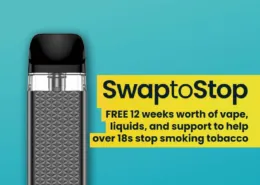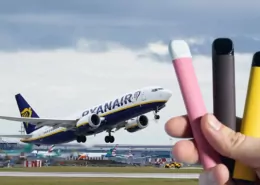Australia’s Baseless Vaping Panic Bringing Unintended Harm
As the UK reassesses its vaping laws, Health Secretary Steve Barclay recently met with Australian officials to learn from their regulatory approach. However, Australia’s prohibitionist vaping restrictions have stirred significant controversy and unintended public health consequences.
Nicotine Bans Create Vast Black Markets
Unlike the UK’s pragmatic risk-proportional stance, Australia maintains strict federal bans on nicotine vaping products under its Therapeutic Goods Act. After initial moves prohibiting nicotine e-liquids in most states, Australians formerly imported personal use vapes from abroad under allowances. But in 2023, Australia blocked imports amid claims of surging youth adoption rates requiring dramatic controls.
Yet blocking legal channels predictably failed to curb underage access or use in reality. Teenagers largely obtained vaping devices from the expansive black markets running rampant while regulated sales stayed banned. And while existing laws already barred retail sales to minors, officials further banned all e-cigarette products outright earlier this year no matter the THC content or intended market.
In Australia’s dwindling reality-based policy circles, many experts believe escalating blanket bans will prove equally ineffective as prior efforts. Law-abiding adult smokers getting cut off from safer alternatives will likely migrate back to smoking’s enormously higher personal and financial costs. And the nation will continue inviting international ridicule for regulatory extremism divorced from ethical evidence-based practice.
Misinformed Doctors & Public Health Leaders
Unlike the UK’s mature pragmatic embrace of vaping’s genuine potential for cigarette harm reduction, Australia descends ever-deeper into evidence-free alarmism. Wild claims freely emerge from political and medical leaders of Big Tobacco ruthlessly targeting children with flavors and marketing campaigns aimed to create entire new generations hooked on nicotine.
In truth, as AU health advocates note, no legal vape advertising exists down under, the biggest brand names come not from major tobacco firms but smaller independent companies, and fears of migration from youth vaping to cigarette usage make little sense against lived experience in other nations or logical probabilities. Misconceptions abound among average Australians as well, with public health surveys showing only 25-30% of doctors and citizens correctly understand vaping’s indisputably reduced risk profile compared to smoking combustibles. Fear and ignorance guide opinion far more than facts regarding nicotine’s relativity or ethical imperatives.
No Gateway Despite Sky-High Tobacco Taxes
Unlike the speculative gateway hypothesis hysteria, real-world data fails to validate concerns. In the UK, over a decade of rising vaping adoption has run alongside plummeting smoking rates across adults and youth. Pragmatic access paired with health education allows properly informed switching toward dramatically safer nicotine options for cigarette smokers facing amplified risks of cancer, lung disease and other perils.
However, Australia combines by some metrics the world’s highest cigarette taxes – compounded by indoor/outdoor bans on smoking practically anywhere in public. Yet contrary to pronouncements, the nation’s adult smoking rate has stagnated without declines since 2018 while smoking among 14-17 year olds doubled from 2% to over 13% by 2022 estimates as vaping rates climbed toward 9% in the same underaged group. This exceeds usual rates seen in British teens. Black market channels foster such worrying counterproductive trends in youth appetites when far safer vaping and deadly smoking options alike spurn regulation, allowing uncontrolled back-channel commerce to dictate availability. Yet radical ideologues ignore the data to call for further clampdowns. Doubly banning vapes through import controls and retail prohibitions while cigarettes remain easily accessible in a prohibited market makes little logical sense if public health improvement guides policy priorities as claimed. But reality divorces from rhetoric.
Read more:
Alarmist Academics As Evidence Refutes Claims
Astoundingly, as smoking and vaping concurrently rise among Australian youth contrary to all world trends, public health academics have doubled down rather than reflecting. Strident ideological adherents to prohibitionist paradigms openly claim the increasing youth smoking itself evidences gateway effects from vaping. But no other advanced jurisdiction replicates this preposterous phenomenon claimed in theoretical models. Real data fails to validate the core claims against vaping, ironically employed to target access by adult smokers hoping to quit. Such backward arguments prove the predictable result of allowing uncontrolled black market channels to dominate delivery of recreational nicotine options for youth experimenting with rebellion while cutting off and warning adult smokers away from far safer alternatives. No sound ethics or logical consistency guide Australia’s moralizing crusade.
The irrationality and ethical malpractice characterizing debates down under dispels any reasonable illusion Australian nicotine policies offer transferable lessons applicable in good faith to other locales hoping to wisely balance adult choice and youth protections. Indeed no available research evidence nor coherent ethical principles seem to guide decision-making divorced from real public interests. Just an impenetrable ideological echo chamber immune to results. If health secretary Barclay continues entertaining further input from Australian health counterparts on vaping laws, he would be wise to entirely disbelieve their irrational narratives as policy guidance. No science but prohibitionist political ideology pumps from Australian mouths regarding nicotine regulations, and the disastrous outcomes speak for themselves.
- Bestselling Vapes in UK After Disposable Ban: What to Stock 2025 - August 8, 2025
- Argentina Debates Stricter Vape Laws Amid Prohibition Failures - August 8, 2025
- Nigeria Advocacy Group Urged to Hike Tobacco & Vape Tax by 100% - August 8, 2025







